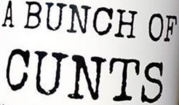CovOps

 Location : Ether-Sphere Location : Ether-Sphere
Job/hobbies : Irrationality Exterminator
Humor : Über Serious
 |  Subject: Pierre Crétois, the looters' philosopher: “Priority must be given to universal access to accomplishment goods” Subject: Pierre Crétois, the looters' philosopher: “Priority must be given to universal access to accomplishment goods”  Sun Nov 15, 2020 1:27 am Sun Nov 15, 2020 1:27 am | |
| To save society from the inequalities that keep widening, to save nature from human excesses, it is urgent to rethink the concept of property. The philosopher Pierre Crétois invites us to do so in a rich and stimulating essay, “la Part commune. Critique of private property ”. Against the appropriation and accumulation without limits, he develops a concept of shared property, the institution of which alone is likely to make us regain our common share. Natural and human things cannot be monopolized without measure or political awareness: they are places of meeting and sharing, access to which must be guaranteed to all.

What are the ambiguities of the proprietary ideology that your essay intends to “flush out”?
Cretan Stone I call “owner ideology” not what the law says about property, but rather a set of representations that guide our behavior and our expectations underground. For this ideology, property is a natural human right which is acquired through individual work alone, which sanctions merit and on which no one has the right to interfere, not even the State. This ideology is problematic, because it is shaped by multiple contradictions. Private property is supposed to be absolute. However, in order to allow owners to cohabit peacefully, property rights must necessarily be limited. In addition, property, supposedly acquired through labor, allows non-labor through rent when transformed into lucrative capital.
How did the right to property come to constitute the principle of other rights? What school of thought since John Locke can this trend be linked to?
Cretan Stone John Locke is a natural law thinker who hypothesizes a state of nature that predates the existence of political societies. For him, the human being has real full and complete rights before the establishment of the State. He is one of the first to have centered the question of natural law in general on that of the natural rights of human beings. It sets out a list of fundamental rights: existence, liberty and goods. These natural rights are properties of the individual. It is a liberal interpretation of natural rights, which considers them as things that one has rather than as general conditions for the fulfillment of the human being. This is what Marx attacks in his work “The Jewish Question”.
“The demon of private property infects everything it touches,” writes Rousseau, whom you quote. For Marx too, private property infects and distorts our relationship to the world. What do you think are the most perverse effects of proprietary absolutism?
Cretan Stone Since the origins of proprietary ideology, with the phenomenon of enclosures (English term for the enclosure of fields), proprietary absolutism has been symbolized by enclosure. Ownership is interpreted as a right to separate from the rest of society and the entire ecosystem. Ownership is then an area over which everyone can exercise absolute control without being accountable. However, property rights should rather be seen as legal elements that structure our relationships with others and with nature than as rights to secede.
Property rights should rather be seen as legal elements that structure our relationships with others and with nature than as rights to secede.
You dismantle the arguments based on merit and labor by which the inequalities of property and wealth are most often justified …
Cretan Stone There is a curious point of convergence between Locke and Marx, it is the centrality of work in their respective conceptions of acquisition. Marx draws all the consequences of the Lockean idea of an acquisition based on work. We must expropriate the expropriators and return the capital to the workers. In doing so, he admits a powerful link between property and work. This work-property link is not, however, obvious. Many of the causes of what I produce are independent of my work. The harvest of the farmer depends on many other factors than his one and only work: the land, the seeds, the climate, the luck… That his work produces something and is even necessary is undoubtedly true, but that everything he produces comes from his one and only work is absolutely questionable.
We must therefore recognize that there is a large part in what we harvest that is not attributable to our work. Getting rid of the mythology of work and merit allows room for essential questions about how resources should be equitably distributed within society. Indeed, if it is true that no one deserves what he has, then there is no longer any moral obstacle to subject the general distribution of resources to principles of justice.
Do Alfred Fouillée’s concepts of social property, as well as Léon Bourgeois’ social debt, mean that no one owns anything without others?
Cretan Stone Indeed, solidarist thinkers and politicians like Fouillée or Bourgeois are important milestones in the social history of the Third Republic. Léon Bourgeois, thinker and politician in solidarity, was one of the first defenders of income tax. He published an important book, “Solidarity” (1896). According to him, we do not owe what we have to ourselves. No one, in fact, can claim to be a self-made man, because no one is made alone and without the help of the invisible army of his fellows. In this sense, the better off we are, the more we are indebted to society. Income tax is then a way of recognizing that part of what we earn does not come back to us.
Rousseau stages “the pivotal moment of the revolt of the poor destitute against the rich who deprive them of the necessary”. Have we not come to the end of this threat and such a pivotal moment?
Cretan Stone Yes it is certain. Global inequalities are exploding. We are undoubtedly very close to the situation evoked by Rousseau, situation which requires the overhaul of the social contract. Property is legitimate only from the moment when, for the most modest, respecting it is not a fool’s contract. In addition, the current era adds a point that Rousseau could not anticipate: the ecological crisis shows that the use we make of what belongs to us can harm others, in particular through the pollution it produces. We cannot therefore separate property from the entire ecosystem of which it is a part.
Icon QuoteRather than looking for which of capitalism, the State or the collective of workers is the legitimate owner of the means of production, I preferred to take up the problem at the root.
Doesn’t redefining a concept of property as a social norm attentive to the community and the environment require redefining the scales of value between goods, as well as limits to remuneration?
Cretan Stone Defending the inappropriateness of things or their fundamental co-possession which, in my pen, means more or less the same thing, implies making right what there is in common in the proper. That there is a common share in all resources, including appropriate ones, requires that their management and distribution be compatible with the requirement of equity. This is to ensure the compatibility of the use or exploitation of goods (including private) with the rights that the community can assert over these same goods. This implies giving priority to the demands of justice over purely economic considerations.
For this, we must certainly relativize or subordinate property, but it is not necessary to defend an economy directed or entirely driven by the State. It is necessary and sufficient to subject the economy to general frameworks ensuring the overall equity of the system. Among these regulatory frameworks which determine the space in which it is legitimate to dispose of what belongs to us, we can imagine, in addition to a minimum wage, a maximum wage, a protective labor code or even an unconditional basic income. Contrary to what is often led to believe, there is, a priori, no moral argument (based, for example, on the confiscatory nature of taxes or on the defense of private property) valid to prevent the financing of these systems.
Things would therefore be absolutely inappropriate. The primary and common goods would be, according to you, rights of access to food, housing, health, education, culture … How to extend these rights of access in a fair way, free from dead ends of private property?
Cretan Stone What matters is not the private ownership of things, but access to what, through them, allows us to lead the life that suits us. We know that sharing and socialized property (public services) make it possible, often much better than private property, to offer everyone access to a set of essential resources (education, sport, culture, health, justice, etc.). The realization that we must give priority to universal access to accomplishment goods, rather than systematically favoring access to private property, strikes me as an essential intuition to overcome the belief that property and markets are the best way to lead to social progress.
You deal relatively little with collectivist experiences ….
Cretan Stone Although it is very sympathetic to me, I voluntarily took the party not to start from the communist hypothesis. This is simply explained. There is an ambiguity in what is meant by collectivism: either it is state property or it is cooperative property. These two versions of what is meant by collectivism or the abolition of private property belong to two divergent political traditions: state communism or libertarian communism. I did not intend to enter into the question at this level. Rather than looking for who of the capitalist, the State or the collective of workers is the legitimate owner of the means of production, I preferred to take up the problem of ownership at the root to see how the various claims relating to on resources. We are going through a transition, we have to radically renew our conceptual apparatus.
Isn’t the current political challenge to reconcile the social conception of property with respect and mutual control of each other’s desires and projects?
Cretan Stone It is exactly this fine balance between the social conception of property and the guarantee of individual freedom that it is a question of finding. Moreover, it is not certain that one goes without the other.
https://pledgetimes.com/pierre-cretois-philosopher-priority-must-be-given-to-universal-access-to-accomplishment-goods/
Listen you, Pierre Crétinois!
You didn't earn the exclusive right to fuck your wife through your own effort and labor. Your ability to fuck your wife is also contingent on numerous other people who, say, built your house, made your bed, produced the bedding sheets, blankets, pillows, etc. Therefore, to be equitable, how about I come over to "your place" this Wednesday and fuck "your" wife too? After all, fair is fair...
PS. Since "your" socialist wife's cunt-slime is in limited supply, I might bring a few buddies along, as they are also into "universal access to accomplishment goods." It'll add to the lubrication. Meanwhile, you can test the left's Labor Theory of Value, as you watch us labor/fuck her, while you value it all... Also, don't get confused with our production of GDP, as it actually just stands for, Group Double Penetration.
We'll see you then... ya fucking, looting Crétinois!
(mh%3DAJAc3ERgYRvRNQAe)8.jpg&f=1&nofb=1) |
|
RR Phantom

Location : Wasted Space
Job/hobbies : Cayman Islands Actuary
 |  Subject: Re: Pierre Crétois, the looters' philosopher: “Priority must be given to universal access to accomplishment goods” Subject: Re: Pierre Crétois, the looters' philosopher: “Priority must be given to universal access to accomplishment goods”  Sun Nov 15, 2020 4:21 pm Sun Nov 15, 2020 4:21 pm | |
| 
Cretin & Co. are...
 |
|

